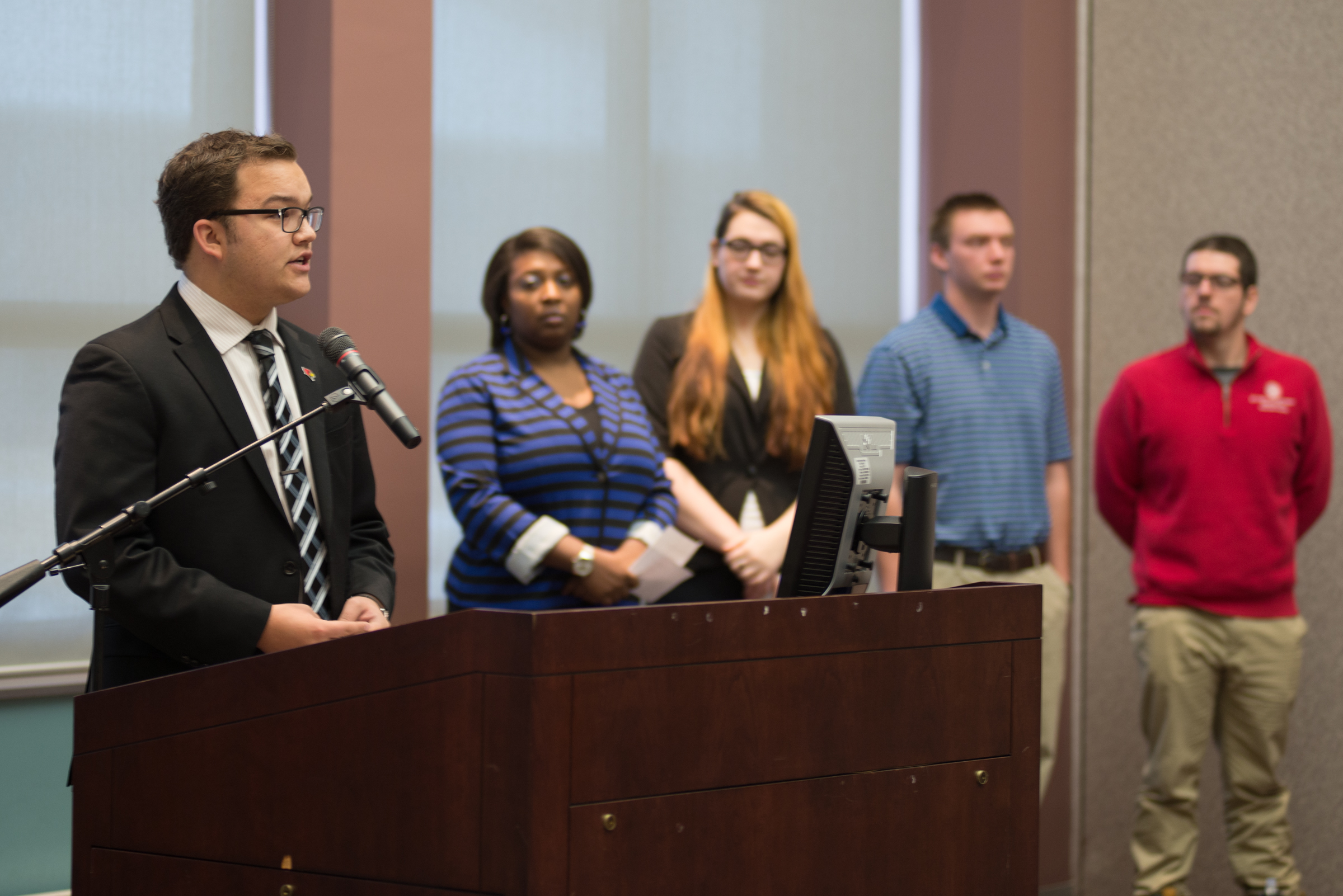Illinois State University students on Friday joined their peers from other Bloomington-Normal colleges and community leaders to call for an end to the eight-month state budget impasse.
Speaking at a press conference were students from Illinois State, Illinois Wesleyan University, Heartland Community College, and Lincoln College. Together with Normal Mayor Chris Koos and other local leaders, they urged the governor and state lawmakers to fully fund scholarships for low-income college students and to finally provide their schools with an operational budget.
The state has failed to pass a budget for the current fiscal year, which started July 1.
“The eight-month impasse is causing irreversible damage to our students and colleges and universities,” said Ryan Powers, Illinois State’s student body president, who emceed Friday’s event at Heartland. “With each day that passes, our students’ education becomes jeopardized and our institutions of higher education face increased difficulty in fulfilling their mission of service to the state.”

Kyra Ester, student body president at Heartland Community College, speaks during the press conference on Friday, February 12, 2016.
Powers added, “We call for immediate investment in our state’s best resources—its students.”
Several Monetary Award Program (MAP) recipients spoke Friday about how much that scholarship means to their education. A student leader from Illinois Wesleyan said she may not be able to finish her degree without MAP; Heartland’s student body president (a single mother of four) said she too depends on MAP.
More than 125,000 MAP recipients statewide have been promised money they’ve yet to receive, Powers said. Illinois State and some other schools have held students harmless for this year, but next academic year looms.
Connor Joyce, Illinois State’s student trustee, is also a MAP recipient. Though he stills works a part-time job on campus, his MAP money freed up time on his schedule for unpaid experiences, such as the trustee position. The Gurnee native comes from a single-parent, low-income household.
“I’ve done my part by choosing to attend college in the state of Illinois and excelling at it,” said Joyce, a senior and longtime student leader. “It’s now time for the state to do its part and fund MAP.”

Normal Mayor Chris Koos addresses the media Friday. Heartland President Rob Widmer, left, also spoke.
Bloomington-Normal’s schools enroll 39,000 students and employ 5,000 people, leading to significant local economic impact, said Kyle Ham, CEO of the Bloomington-Normal Economic Development Council. The community’s schools create the highly skilled workforce required by any diverse economy, he said.
“It is incumbent that we view education as an investment, not an expense,” Ham said.
Highlighting the town of Normal’s long shared history with higher education, Koos said the impasse threatens his community’s and Illinois’ ability to stay competitive with other states and other countries.
The need for a budget is even greater this spring as high school seniors and their families begin to decide where to attend college in the fall.
“As talented young people seek education and opportunities elsewhere, we will continue to fall further behind, and the effects will be felt strongly in Normal,” said Koos.
Contact STATEside’s editor at rmdenha@IllinoisState.edu.

